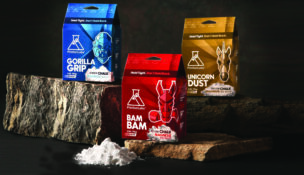Amid COVID, craft brewers see the can half-full
In the era of COVID-19, the taproom-centric model favored by startup breweries suddenly looked impractical
Eric Peterson //March 8, 2021//


Amid COVID, craft brewers see the can half-full
In the era of COVID-19, the taproom-centric model favored by startup breweries suddenly looked impractical
Eric Peterson //March 8, 2021//
In 2011, there were 126 breweries in Colorado. That number swelled to 425 in 2019. Then the industry hit its first rough patch in a decade.
In the era of COVID-19, the taproom-centric model favored by startup breweries suddenly looked impractical. “There’s a lot of breweries out there that never imagined they would put their beer into cans and are now resorting to doing so,” says Shawnee Adelson, executive director of the Colorado Brewers Guild.
Many brewers were left scrambling for packaging options, leading to a domino effect. Mobile canning services were overwhelmed, then orders for canning equipment increased, and then cans—stretched thin by a global move to cans for many more beverages—became hard to find.
As for the breweries, it was all about building a model resilient enough to survive a slow winter. While closures were up by more than 50% in 2020, Adelson says the number of new breweries opening in Colorado in 2020 was “relatively flat.”
In Arvada, LUKI Brewery was an exception to the rule. After a career in engineering and contract manufacturing, Jeff Smith founded the circus-themed brewery where he now serves as ringmaster. He planned to open LUKI in May 2020, but the arrival of COVID-19 pushed it to July.
Smith didn’t veer from his original taproom model. “Even with the pandemic raging, we don’t want to be on tap at bars, we don’t want to be on shelves at King Soopers,” he says.
He decided not to hire a head brewer right away and started brewing himself. He installed firepits and outdoor seating instead of buying barstools. “We put so much money into it, we had to keep pushing forward,” he says. “We said, ‘Let’s try to get this open and just do it ourselves.’”
The strategy worked. LUKI operated in the black for its first six months, which Smith sees as a good omen for the post-pandemic era. “We have no idea what it could really look like,” he says. “That’s what’s exciting for us.”
Dave Thibodeau, president and co-founder of Durango-based Ska Brewing, says the stay-at-home order closed the company’s new Ska Street Brewstillery in Boulder on its opening night. “We were open for one hour and 11 minutes,” he laughs.
At Ska’s home base, it’s been busier and easier to manage. “It’s really different in the mountain towns,” Thibodeau says. “Nobody in Boulder’s going anywhere, but in Durango we have tourists, and it’s ski season.”
Not that the pandemic didn’t have an impact on the 25-year-old brewery in 2020, he adds. “Everybody took a huge hit in April, including us.”
But Ska kept brewing and found a market thirsty for canned beer, which made up about half of all sales before the pandemic. “We started making those gains, and then there was a shortage of can manufacturing,” Thibodeau says. “That was a punch in the gut.”
The brewery rolled with it by repurposing old cans with new labels. “It’s been really difficult logistically, but we’re burning through a lot of stuff that was destined to be recycled and now it’s being used,” Thibodeau says, noting that Ska ended 2020 “about even” with initial projections.
Thibodeau says closures could well increase in 2021, led by bigger names. “We’re going to see a few established breweries that have been around the block or two closing in the next wave,” he predicts.

























